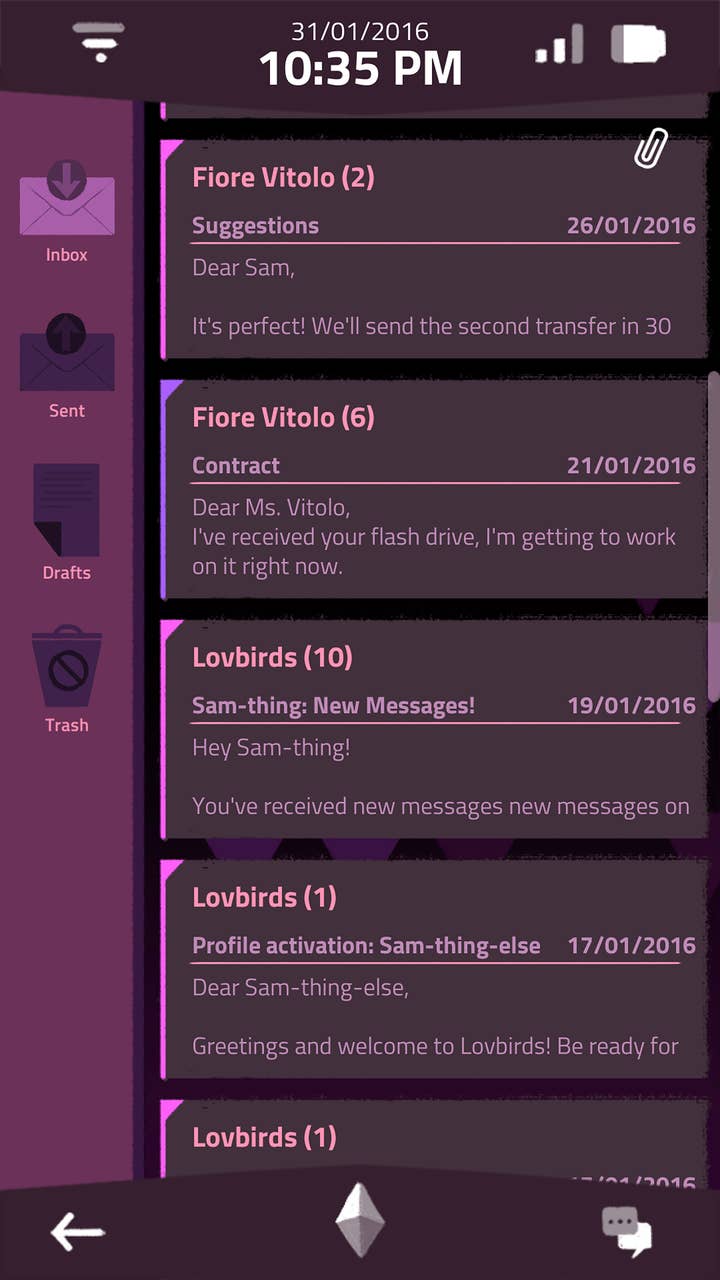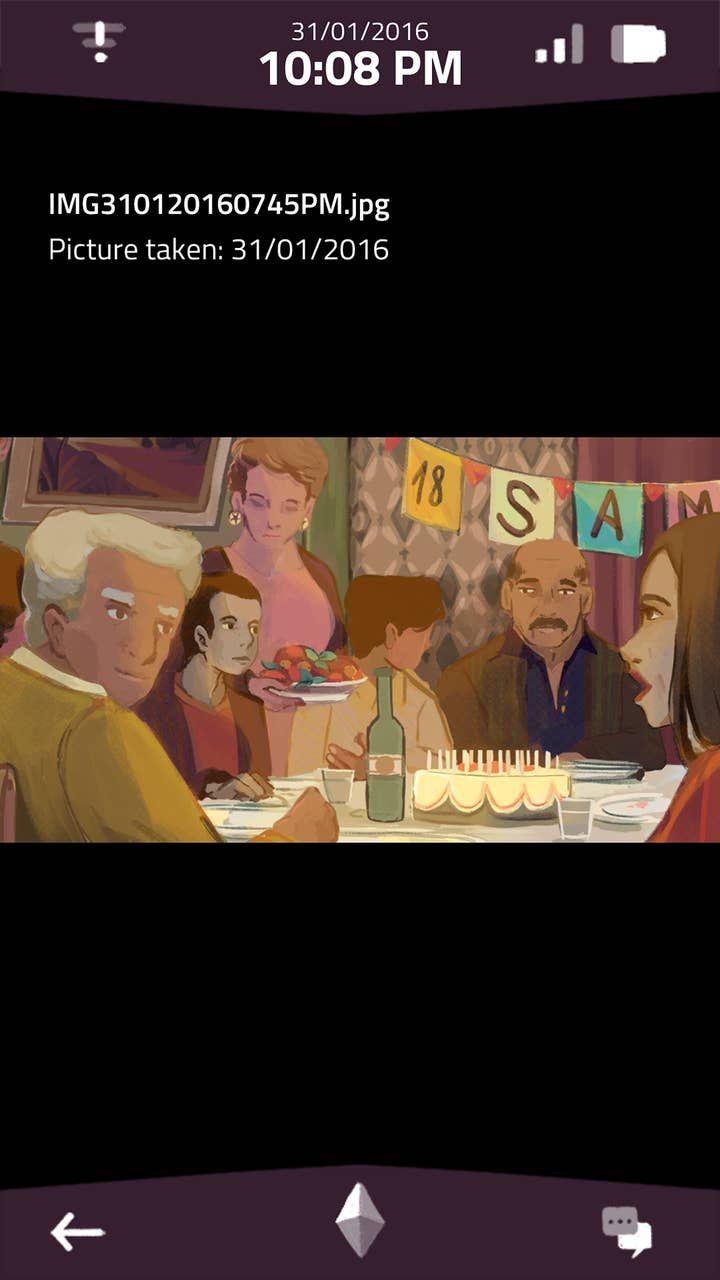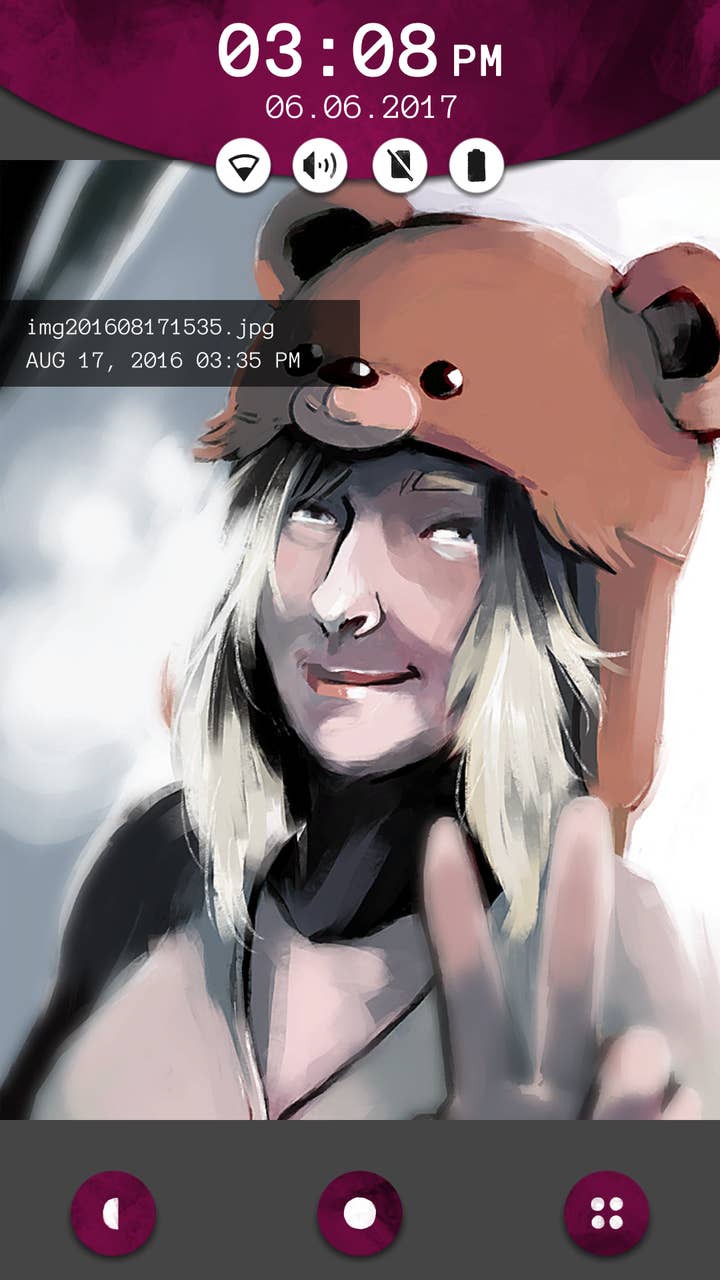Spreading social acceptance through a mobile game
Accidental Queens discusses the impact of exploring social themes in A Normal Lost Phone and Another Lost Phone
You find an abandoned phone. As soon as you unlock the home screen, four missed messages from the owner's father come through. The last reads: "We're all really worried, everything is fine. Your mum wants to call the police."
Only by exploring the texts, photos, emails and other content of the phone will you learn the identity of its owner - a young transgender woman known as Sam - and understand what happened to her.
This is the premise of A Normal Lost Phone, the narrative puzzle game released earlier this year by French indie Accidental Queens. Over the course of the game, the studio explores the impact homophobia, transphobia and peer pressure have on this fictional person's life in a scenario that is all too real for some.

While it is available for PC, Mac and Linux, the game's phone-like interface makes it best suited to mobile - a platform that offers the studio the largest possible audience. Upon release, A Normal Lost Phone was praised for its storytelling and racked up sales of more than 100,000 units in its first three months, but Accidental Queens soon discovered its debut release had a far more profound effect.
"When players connect with the character, they discover more about themselves and become more open to talking about things," studio co-founder Elizabeth Maler tells GamesIndustry.biz.
The first signs came from the game's reception among influencers, with "a lot of famous YouTubers" in various countries not only playing through the game but sharing their own point of view afterwards. But it was the audience surrounding these channels that revealed the game's true impact.
"We saw lots of comments on YouTube about how playing this game had helped them, either to come out and accept themselves or learn more about tolerance," says Maler. "Some even said they used to be homophobic and the game really opened up their eyes. That was really impactful for us. Almost every day, we're getting emails from people saying, 'thank you, this game helped me'.
"Of course we had some people who weren't happy about it: 'Why are you putting politics into video games?' and so on."
"Some players said they used to be homophobic and the game really opened up their eyes. That was really impactful for us."
Sadly, this last point was almost inevitable. There has been a growing movement for years - amplified by the echo chambers of social media - that vehemently objects to video games discussing or exploring these important topics. The result is almost always abuse and harassment for the developers - particularly teams comprised predominantly of or led by women, like Accidental Queens - but Maler tells no such tale.
"It really was a small minority," she says. "The way we did our marketing and described the game on Steam or app stores meant that we were never saying 'we are going to teach you a lesson'. We are not trying to do that. We're just trying to tell a story. In this way, we attract people who are not usually interested in these topics.
"And there's a lot of other stuff to discover. It's not just about queerness; it's also about solving puzzles, so people are getting fun out of the game."
It's a difficult balance to strike. The developer had a message to send but it didn't want to preach or lecture its audience on the evils of homophobia - instead, it wanted players to explore the topic for themselves and come to their own conclusions.
Part of the solution came in fully exploring the main character's life and personality. Yes, players will learn that the phone they explore belonged to a trans woman struggling with several issues, but they will also learn she had a passion for playing the harp and liked board games. Fleshing out the character makes the game a richer, more satisfying experience.
There's also the fact that players are not put into the shoes of the phone's previous owner. Instead, it is more of a role-playing experience in which they play the most accessible character possible: themselves.

"We don't force you to make any choices you might not agree with," Maler explains. "In this game, you don't play as someone else; you're playing yourself as if you've found this phone. You're just a witness of this situation, so we're not forcing you to think anything or make choices because the only choice you have is to look through the apps. That way we make sure players don't feel like an incarnation of something they might not agree with."
With A Normal Lost Phone, Accidental Queens learned there are limits to how thoroughly you can explore and present a topic. While the structure is more informative than it is lecturing, the developer still felt compelled to hold back from touching on certain aspects of homophobia - something that led to content actually being removed from the game.
"At one point, we had a passage talking about the murder of young LGBT people, which is a very heavy topic, and also suicide," says Maler. "We spoke to an LGBT organisation, and they said because the game is mainly focused on young people who have not come out yet, it might scare them. They might think they have to try to be straight, because otherwise they'll be murdered. So we removed that part in order to be more helpful.
"It's always a balancing act between wanting to talk about something but not wanting it to be taken the wrong way by your audience. That's why we have to work so closely with a specialised organisation at every step."
"We were never saying 'we are going to teach you a lesson'. We're just trying to tell a story. In this way, we attract people who are not usually interested in these topics"
Thorough research and playtesting is the key to A Normal Lost Phone's success in not only tackling such sensitive issues in a respectful way, but also presenting it in a way that resonates with the broadest possible audience. Maler stresses the importance of the due diligence her team carried out.
"We started doing research long before we started work on this game," she says. "We spoke with specialists and organisations with expertise in this area, as well as people who had to face these issues. We also read a lot, both academic stuff and novels on the same topic, as well as some autobiographies.
"And after the game was finished, we showed it to these people because we wanted to make sure we had treated the subject well. We don't want to talk about something and then find people don't think it's accurate. So there was a lot of research before and after."
Last month, Accidental Queens released a follow-up, entitled Another Lost Phone: Laura's Story. Rather than revisiting the themes explored in the first title, this centres around a completely different topic - although Maler won't tell us which one as "that would be a big spoiler."

There are other crucial differences in the story it is telling. Most notably, this is about an older character dealing with the everyday troubles of adult life, which opened up "a few more worldly issues" for Accidental Queens to explore.
"The first game was about an 18-year-old so it explored life as a teenager, whereas this one is a bit older so it's about the balance between work life and personal life, as well as how those can mix - which is something that happens to a lot of us," Maler says.
"Everyday issues haven't been covered much in video games yet... We're convinced that games can talk about these issues, and there's an audience for that."
"It's also about isolation, and how isolated you can be while still connected through your phone to everybody, and it touches on the difficulties of the digital age for young adults."
Naturally, lessons have been learned from the first title. Some players were uncomfortable with invading the main character's privacy so thoroughly. While exploring the phone's contents is essential to learning as much about her struggles as possible, the ability to act for that character - such as sending email drafts that linger in the phone's outbox - crossed a line for some people.
"We removed this part from the second game, because that wasn't a good design choice," Maler acknowledges. "This game is still an invasion of privacy, but less so than the first one. At the beginning of this one, we have a disclaimer reminding people that looking through someone's phone is not a good idea. You can do it in a game, because it's a game, but don't do it in real life. We didn't think that was something that we had to say, because to us it's obvious. War games don't say 'remember, don't kill everybody', but I guess society teaches about not killing people more than not looking through people's phones."
Neither of Accidental Queens' titles are unique in presenting a narrative or puzzle adventure in the guise of a smartphone interface, but stand out due to the topics they choose to explore. Similar titles such as D. Glaznez's I Am Innocent centre around more extraordinary topics like kidnappings, but the French indie prefers to focus on things that affect a far wider spread of people.

"Everyday issues haven't been covered much in video games yet," says Maler. "There are many more games about war and trolls, and we wanted to do something different. We liken it to the cinema industry: you have all these blockbusters and superhero movies, but then there are independent movies showing topics from everyday life. We're convinced that games can talk about these issues, and there's an audience for that."
The indie space has proven to be the most ambitious in exploring all manner of social and political issues, but Maler believes the audience for such titles is often too niche. It's certainly hard to imagine titles predominantly for PC or consoles reaching the same number of people as the Lost Phone series, thanks to the gargantuan addressable audience afforded by smart devices - and this is something Maler is keen to push further.
"We're trying to put more effort on marketing because we want to reach a bigger audience," she says. "It's interesting the amount of media that has been interested in our game. For example, Style Magazine and even a TV guide in France did an article on us.
"For us, it's just a matter of time. The video game industry is quite young. Just as the comics of two decades ago were really seen as something for children and more mature ones started to emerge later, it's only a matter of time for games. We're happy to show it's possible."
"We're not forcing you to think anything or make choices. We make sure players don't feel like an incarnation of something they might not agree with"
Maler is keen to see more developers - including, or perhaps especially, AAA game-makers - explore the social themes that affect millions of people every day, but stresses the need for comprehensive research.
"Work with people who really know the topic you want to talk about, and keep talking to them after you've created the game to make sure you haven't created anything offensive or you don't do something horrible like pushing LGBT people to kill themselves because they think their life is going to be too hard.
"Also, do a lot of playtesting. It's important when you do a game about a social topic that you think about who you have playtesting. You have to have some people who are aware of this subject, but you also have to playtest with people who aren't familiar with it or even interested in it to make sure the game appeals to both of them.
"In a playtest for A Normal Lost Phone we had this white guy saying, 'I have the feeling you're saying all straight white guys are bad', and that's not what we wanted so that's something we had to balance."
Finally, Maler advises that developers should resist trying to tackle too many topics at once. A Normal Lost Phone centres around homophobia and transphobia, but at one stage it was also going to cover feminism, racism and more.
"We realised if we put too many topics in the same game, people are not going to remember anything of it because there's too much information. There's also the chance you're going to do one of them wrong, so I'd just focus on one."
